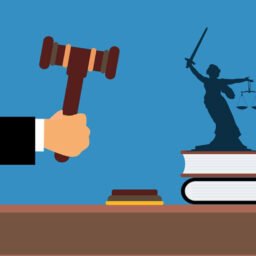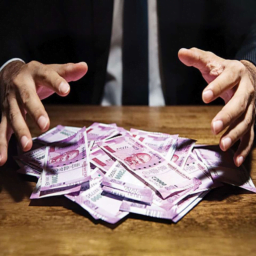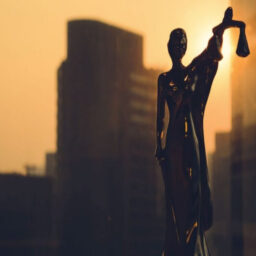Introduction
Witnesses are an integral part of the dispute resolution system, they perform the sacred duty of assisting the court in uncovering the truth. The witness gives his testimony on the facts in issue or relevant facts,[1] but the testimony cannot be blindly trusted. It has to be tested and/or corroborated, the witness is tested by a process of asking questions called Examination. It is done by the order of examination defined and given U/S 137 &138 in The Indian Evidence Act, 1872.
- Examination-in-chief: Examination of witness by the party who calls him.
- Cross-Examination: Examination by the adverse party
- Re-Examination: Examination by the party who calls him, after Cross-Examination.
Cross-Examination[2] has been described as the best tool for uncovering the truth[3], the opposite party in cross-examination tries to discredit the accuracy, credibility and value of the evidence given in the form of testimony[4]. The adverse party has the freedom to ask questions pertaining:-
- Relevant facts.[5]
- Previous statements made in writing.[6]
- Character and position of witness to test his veracity.[7]
- Indecent and scandalous questions (If not forbidden by the court).[8]
- Even irrelevant questions if permitted by the court.[9]
Compulsion to answer
Section 132[10] – “A witness shall not be excused from answering any question as to any matter relevant to the matter in issue in any suit in any civil or criminal proceeding, upon the ground that the answer to such question will criminate, or may tend directly or indirectly to criminate, such witness, or that it will expose, or tend directly or indirectly to expose, such witness to a penalty or forfeiture of any kind.” A witness is legally bound to answer any question which is relevant to the fact in issue even if the answer of such question will criminate him. The court has the power to decide whether the witness is compelled to answer the question and can warn him that he is not obliged to answer the question.[11]
Protection against self-incrimination
Section 132 Proviso: If the witness has been compelled to answer a question that incriminates him, then such answer cannot be used to subject the witness to arrest, prosecution or be proved against him in any criminal proceeding. [12]The privilege of refusal to answer has been removed to compel the witness to speak the truth, so the witness has been given protection from incrimination further fortified by Article 20(3) of the Indian Constitution, 1950, which grants the fundamental right of protection from self-incrimination and prevents any person from being compelled to be a witness against himself.
But such protection was held not to be available in all cases State (Delhi Administration) v. Jagjit Singh[13]In the case of a party giving evidence in civil litigation by own accord and in criminal cases offering himself to be examined as a witness, this protection is not available as such testimonies are voluntary. The protection will be available in cases where the witness answering questions has been compelled to be present by the issue of summons or other means and such testimony was held not to be voluntary.
Admission by Silence
Section 17[14] – An admission is a statement, 1oral or documentary or contained in electronic form, which suggests any inference as to any fact in issue or relevant fact, and which is made by any of the persons, and under the circumstances, hereinafter mentioned. The silence of a witness will be taken as an Admission by Conduct or Admission by Silence and an adverse inference is drawn if the witness refuses to answer and remains silent.[15]
B.C. Lokesh v. N.A. Pandurangaih[16]
Conduct in certain circumstances includes silence as well and can be used as an admission. The admission can be used to draw an adverse inference based on the silence.
Witness’ Compulsion to Answer, Right to Remain Silent and Protection from Self-Incrimination Around the World
The USA
The witnesses in the United States of America have been guaranteed the “Right to Remain Silent”. Individuals cannot be compelled to provide answers if such answers provide information that would incriminate them. Any individual can invoke or plead the 5th amendment[17] and refuse to answer the question put to him but 3 conditions have to be fulfilled:-
- The individual must be compelled by communication through a subpoena or other legal process.
- The communication must be testimonial.
- The testimony must be self-incriminating, the information need not be incriminating per se and the possibility of it leading to the discovery of incriminating evidence would suffice.
Inference Drawn by Silence[18]
- Criminal Cases: When an individual invokes or pleads the fifth, her silence cannot be used against her in a criminal case. It would not draw a negative inference or imply guilt on the defendant.
- Civil Cases: In civil cases, the judge or jury may draw an adverse inference to support liability when a defendant pleads the fifth amendment
- An employee can be fired if he pleads the fifth amendment if questioned during federal investigations.
France
The suspects in France don’t have a “Right to Remain Silent” and can be compelled to answer all questions, but they cannot be held to do so under oath and can’t be tried for perjury. This protection from perjury has been extended to the suspect’s spouse and close family members also.[19]
England & Wales
Right to Silence has been provided in England & Wales but some adverse inferences may be drawn in certain cases. But conviction cannot be wholly based on such inferences and the court must direct the limits to inferences drawn by the silence to the jury.[20]
CONCLUSION
The Right to Remain Silent or protection from self-incrimination has been guaranteed in some form or other in countries around the world. This is a vital part of the justice system as a witness cannot be expected to assist the court and get tried or arrested based on the same testimony. This protection has been ensured specifically in criminal cases where adverse inferences are not to be drawn to ensure total assistance from the witnesses as neither the innocent can be punished nor the guilty roam free. In civil cases, there is no compulsion on the witnesses and they have to answer every question put to them or take solace under Right to Remain Silent but then an adverse inference may be drawn.
Author(s) Name: Naman Sinha (Osmania University, Hyderabad)
References:
[1] Indian Evidence Act 1872, s 3,5
[2] Indian Evidence Act 1872, s 138.
[3] 3 Wigmore, Evidence §1367, p. 27 (2d ed. 1923)
[4] Indian Evidence Act 1872, s 146
[5] Indian Evidence Act 1872, s 5.
[6] Indian Evidence Act 1872, s 145.
[7] Indian Evidence Act 1872, s 146.
[8] Indian Evidence Act 1872, s 151.
[9] Indian Evidence Act 1872, s 136.
[10] Indian Evidence Act 1872, s 132.
[11] Indian Evidence Act 1872, s 148.
[12] Indian Evidence Act 1872, s 132
[13] State (Delhi Administration) v. Jagjit Singh,[1988] AIR 1989 SC 598.
[14] Indian Evidence Act 1872, s 17.
[15] Indian Evidence Act 1872, s 148(4)
[16] B.C. Lokesh v N.A. Pandurangaih Setty,[2017] CRL. RP 170/2017
[17] The Constitution of the United States, Article 1, Section 8, Clause 5.
[18] What Does It Really Mean To “Take the Fifth”? (2018) MoloLamken LLP <https://www.mololamken.com/knowledge-What-Does-It-Really-Mean-To-Take-the-Fifth>
[19] The French Code of Criminal Procedure, art. L116.
[20] Criminal Justice and Public Order Act,1994.
















